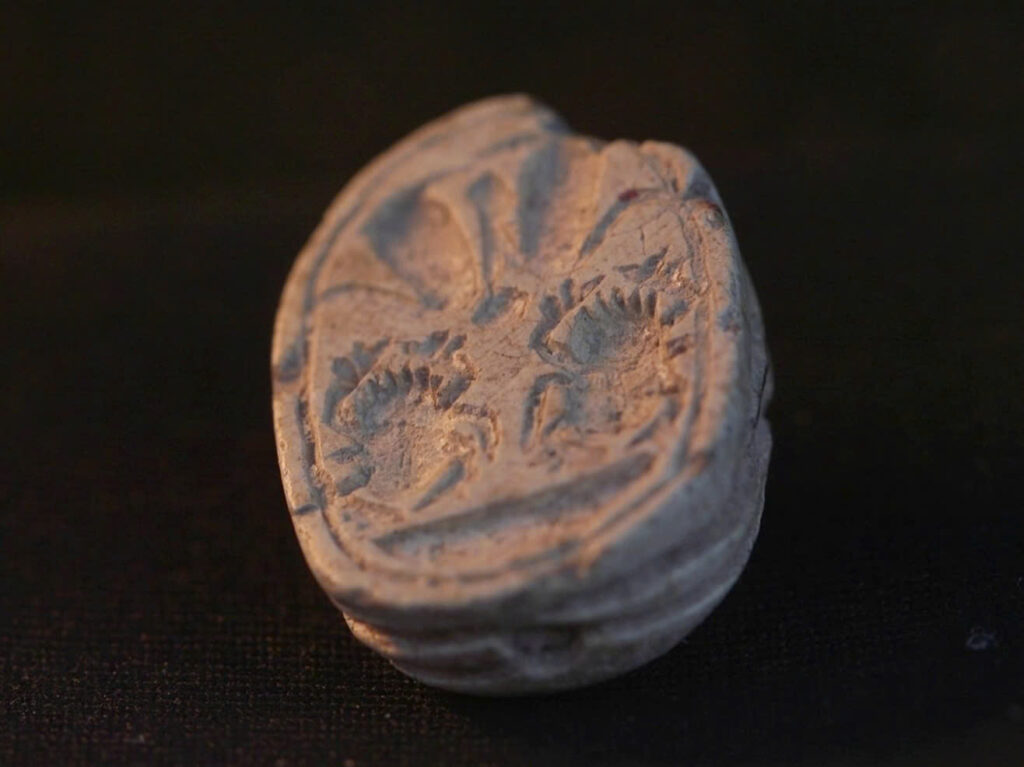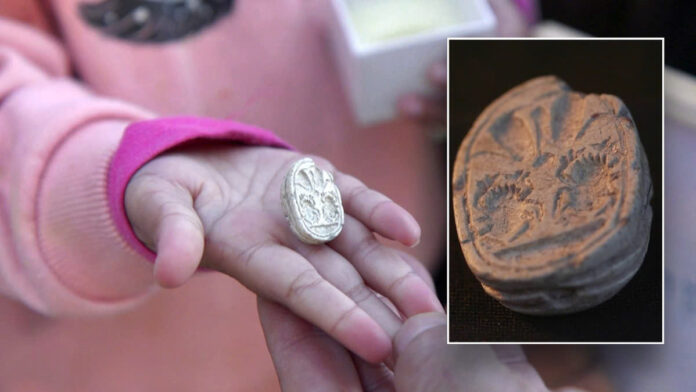remarkable archaeological discovery was made at Tel Azekah when three-year-old Ziv Nitzan uncovered a 3,800-year-old Canaanite seal while on a family hike. The Israel Antiquities Authority (IAA) announced the significant find on Tuesday, noting its historical importance.
Unexpected Discovery by Young Explorer
Ziv, from Moshav Ramot Meir, was exploring the historic area with her parents and two older sisters when she spotted something unusual among the many stones scattered across the landscape.
“We were walking along the trail when Ziv suddenly bent down and picked up this particular stone out of all the ones around her,” explained her sister Omer. After cleaning the object, the family quickly realized they had found something significant and promptly contacted the IAA.
Historical Significance of the Scarab Seal
The artifact, shaped like a scarab beetle, has its origins in ancient Egyptian culture where it symbolized renewal and rebirth. According to Dr. Daphna Ben-Tor, a specialist in ancient artifacts, these scarabs served as both seals and amulets during this period, often featuring symbols that reflected the religious beliefs and social status of their owners.

Further examination confirmed the amulet’s Canaanite origins. The Canaanites were an ancient civilization mentioned in biblical texts who inhabited the Levant region and established city-states under local rulers.
Connection to Biblical History

Tel Azekah itself holds considerable biblical significance as the legendary location of the battle between David and Goliath. This famous confrontation, described in 1 Samuel 17, tells how a young shepherd named David defeated the giant warrior Goliath using only a stone and his sling, symbolizing the triumph of faith over seemingly impossible odds.
Video
Ongoing Archaeological Research

The Tel Azekah site has been under excavation for 15 years by researchers from Tel Aviv University. Professor Oded Lipschits, who directs the excavation, noted that the area was once a flourishing city during the Middle and Late Bronze Ages. Ziv’s discovery adds to the collection of artifacts found at the site, highlighting the cultural exchanges between Canaan and Egypt during this period.
Recognition and Exhibition
In appreciation of her extraordinary find, the IAA presented Ziv and her family with a certificate. The scarab seal will be featured in a special exhibition at the Jay and Jeanie Schottenstein National Campus for the Archaeology of Israel in Jerusalem, alongside other significant artifacts from ancient Egypt and Canaan.

IAA Director Eli Escusido expressed enthusiasm about the upcoming exhibit, which will showcase impressive items including pharaonic seals and ritual vessels that illuminate the rich cultural history of the region. This discovery enhances our understanding of ancient civilizations while reminding us of the historical treasures that can be found in unexpected places.

